- Home
- Linda Lael Miller
There and Now
There and Now Read online
Selected praise for
LINDA LAEL MILLER
“It doesn’t get better than this.”
—Romantic Times BOOK reviews on Deadly Gamble
“The Last Chance Café delivers powerful romance flavored with deep emotional resonance.”
—Romantic Times BOOK reviews
“Linda Lael Miller provides a terrific western romance.”
—The Best Reviews on McKettrick’s Choice
“Miller’s intimate knowledge of the wild west sweeps you into a story as realistic as it is romantic. She paints a brilliant portrait of the good, the bad and the ugly, the lost and the lonely, and the power of love to bring light into the darkest of souls. This is western romance at its finest.”
—Romantic Times BOOK reviews on The Man From Stone Creek
LINDA LAEL MILLER
THERE and NOW
LINDA LAEL MILLER
grew up in rural Washington as the daughter of a town marshal. The self-confessed barn goddess was inspired to pursue a career as an author after an elementary school teacher said the stories she was writing might be good enough to be published. Linda broke in to publishing in the early 1980s. She is now a New York Times bestselling author of more than sixty contemporary, romantic-suspense and historical novels, including McKettrick’s Choice, The Man from Stone Creek and Deadly Gamble. When not writing, Linda enjoys riding her horses and playing with her cats and dogs. Through her Linda Lael Miller Scholarships for Women, she provides grants to women who seek to improve their lot in life through education.
For more information about Linda, her scholarships and her novels, visit her Web site, www.lindalaelmiller.com.
For Darlene Layman, the best darn secretary ever,
and her very nice husband, Lloyd.
Contents
Chapter One
Chapter Two
Chapter Three
Chapter Four
Chapter Five
Chapter Six
Chapter Seven
Chapter Eight
Chapter Nine
Chapter Ten
Chapter Eleven
Chapter Twelve
Chapter Thirteen
Chapter Fourteen
Chapter Fifteen
Chapter One
Elisabeth McCartney’s flagging spirits lifted a little as she turned past the battered rural mailbox and saw the house again.
The white Victorian structure stood at the end of a long gravel driveway, flanked by apple trees in riotous pink-white blossom. A veranda stretched around the front and along one side, and wild rose bushes, budding scarlet and yellow, clambered up a trellis on the western wall.
Stopping her small station wagon in front of the garage, Elisabeth sighed and let her tired aquamarine eyes wander over the porch, with its sagging floor and peeling paint. Less than two years before, Aunt Verity would have been standing on the step, waiting with smiles and hugs. And Elisabeth’s favorite cousin, Rue, would have vaulted over the porch railing to greet her.
Elisabeth’s eyes brimmed with involuntary tears. Aunt Verity was dead now, and Rue was God only knew where, probably risking life and limb for some red-hot news story. The divorce from Ian, final for just a month, was a trauma Elisabeth was going to have to get through on her own.
With a sniffle, she squared her shoulders and drew a deep breath to bolster her courage. She reached for her purse and got out of the car, pulling her suitcase after her. Elisabeth had gladly let Ian keep their ultramodern plastic-and-smoked-glass furniture. Her books, tapes and other personal belongings would be delivered later by a moving company.
She slung her purse strap over her shoulder and proceeded toward the porch, the high grass brushing against the knees of her white jeans as she passed. At the door, with its inset of colorful stained glass, Elisabeth put down the suitcase and fumbled through her purse for the set of keys the real-estate agent had given her when she stopped in Pine River.
The lock was old and recalcitrant, but it turned, and Elisabeth opened the door and walked into the familiar entryway, lugging her suitcase with her.
There were those who believed this house was haunted—it had been the stuff of legend in and around Pine River for a hundred years—but for Elisabeth, it was a friendly place. It had been her haven since the summer she was fifteen, when her mother had died suddenly and her grieving, overwhelmed father had sent her here to stay with his somewhat eccentric widowed sister-in-law, Verity.
Inside, she leaned back against the sturdy door, remembering. Rue’s wealthy parents had been divorced that same year, and Elisabeth’s cousin had joined the fold. Verity Claridge, who told fabulous stories of ghosts and magic and people traveling back and forth between one century and another, had taken both girls in and simply loved them.
Elisabeth bit her lower lip and hoisted her slender frame away from the door. It was too much to hope, she thought with a beleaguered smile, that Aunt Verity might still be wandering these spacious rooms.
With a sigh, she hung her shoulder bag over the newel post at the base of the stairway and hoisted the suitcase. At the top of the stairs were three bedrooms, all on the right-hand side of the hallway. Elisabeth paused, looking curiously at the single door on the left-hand side and touched the doorknob.
Beyond that panel of wood was a ten-foot drop to the sun-porch roof. The sealed door had always fascinated both her and Rue, perhaps because Verity had told them such convincing stories about the world that lay on the other side of it.
Elisabeth smiled and shook her head, making her chin-length blond curls bounce around her face. “You may be gone, Auntie,” she said softly, “but your fanciful influence lives on.”
With that, Elisabeth opened the door on the opposite side of the hallway and stepped into the master suite that had always been Verity’s. Although the rest of the house was badly in need of cleaning, the real-estate agent had sent a cleaning crew over in anticipation of Elisabeth’s arrival to prepare the kitchen and one bedroom.
The big four-poster had been uncovered and polished, made up with the familiar crocheted ecru spread and pillow shams, and the scent of lemon furniture polish filled the air. Elisabeth laid the suitcase on the blue-velvet upholstered bench at the foot of the bed and tucked her hands into the back pockets of her jeans as she looked around the room.
The giant mahogany armoire stood between two floor-to-ceiling windows covered by billowing curtains of Nottingham lace, waiting to receive the few clothes Elisabeth had brought with her. A pair of Queen Anne chairs, upholstered in rich blue velvet, sat facing the little brick fireplace, and a chaise longue covered in cream-colored brocade graced the opposite wall. There was also a desk—Verity had called it a secretary—and a vanity table with a seat needle-pointed with pale roses.
Pushing her tousled tresses back from her face with both hands, Elisabeth went to the vanity and perched on the bench. A lump filled her throat as she recalled sitting here while Verity styled her hair for a summer dance.
With a hand that trembled slightly, Elisabeth opened the ivory-inlaid jewel box. Verity’s favorite antique necklace, given to her by a friend, lay within.
Elisabeth frowned. Odd, she reflected. She’d thought Rue had taken the delicate filigree necklace, since she was the one who loved jewelry. Verity’s modest estate—the house, furnishings, a few bangles and a small trust fund—had been left to Elisabeth and Rue in equal shares, and then the cousins had made divisions of their own.
Carefully, Elisabeth opened the catch and draped the necklace around her neck. She smiled sadly, recalling Verity’s assertions that the pendant possessed some magical power.
Just then, the telephone rang, startling her even though the agent at the real-estate office had told her servic
e had been connected and had given her the new number.
“Hello?” she said into the receiver of the French phone sitting on the vanity table.
“So you made it in one piece.” The voice belonged to Janet Finch, one of Elisabeth’s closest friends. She and Janet had taught together at Hillsdale Elementary School in nearby Seattle.
Elisabeth sagged a little as she gazed into the mirror. The necklace looked incongruous with her Seahawks sweatshirt. “You make it sound like I crawled here through a barrage of bullets,” she replied. “I’m all right, Janet. Really.”
Janet sighed. “Divorce is painful, even if it was your own idea,” she insisted quietly. “I just think it would have been better if you’d stayed in Seattle, where your friends are. I mean, who do you know in that town now that your aunt is gone and Rue is off in South Africa or Eastern Europe or wherever she is?”
Through the windows, Elisabeth could see the neighbor’s orchard. It was only too true that most of her friends had long since moved away from Pine River and her life had been in Seattle from the moment she’d married Ian. “I know myself,” she answered. “And the Buzbee sisters.”
Despite her obvious concerns, Janet laughed. Like Elisabeth, she was barely thirty, but she could be a real curmudgeon at times. “The Buzbee sisters? I don’t think you’ve told me about them.”
Elisabeth smiled. “Of course, I have. They live across the road. They’re spinsters, but they’re also card-carrying adventurers. According to Aunt Verity, they’ve been all over the world—they even did a joint hitch in the Peace Corps.”
“Fascinating,” Janet said, but Elisabeth couldn’t tell whether she meant it or not.
“When you come down to visit, I’ll introduce you,” Elisabeth promised, barely stifling a yawn. Lately, she’d tired easily; the emotional stresses and strains of the past year were catching up with her.
“If that’s an invitation, I’m grabbing it,” Janet said quickly. “I’ll be down on Friday night to spend the weekend helping you settle in.”
Elisabeth smiled, looking around the perfectly furnished room. There wasn’t going to be a tremendous amount of “settling in” to do. And although she wanted to see Janet, she would have preferred to spend that first weekend alone, sorting through her thoughts and absorbing the special ambiance of Aunt Verity’s house. “I’ll make spaghetti and meatballs,” she said, resigned. “Call me when you get to Pine River and I’ll give you directions.”
“I don’t need directions,” Janet pointed out reasonably. “You were married in that house, in case you’ve forgotten, and I was there.” Her voice took on a teasing note. “You remember. Rue and I and two of your friends from college were all dressed alike, in floaty pink dresses and picture hats, and your cousin said it was a shame we couldn’t sing harmony.”
Elisabeth chuckled and closed her eyes. How she missed Rue, with her quick, lethal wit. She drew a deep breath, let it out, and made an effort to sound cheerful so Janet wouldn’t worry about her any more than she already did. “I’ll be looking for you on Friday, in time for dinner,” Elisabeth said. And then, after quick good-byes, she hung up.
With a sigh of relief, Elisabeth crossed the room to the enormous bed, kicked off her sneakers and stretched out, her hands cupped behind her head. Looking up at the intricately crocheted canopy, she felt a sense of warm well-being wash over her.
She would make a list and shop for groceries later, she promised herself. Right now she needed to rest her eyes for a few moments.
She must have drifted off, because when the music awakened her, the spill of sunlight across the hooked rug beside the bed had receded and there was a slight chill in the air.
Music.
Elisabeth’s heart surged into her throat as she sat up and looked around. There was no radio or TV in the room, and yet the distant, fairylike notes of a piano still teased her ears, accompanied by a child’s voice.
“Twinkle, twinkle, little star
how I wonder what you are….”
Awkwardly, Elisabeth scrambled off the bed to pursue the sound, but it ceased when she reached the hallway.
All the same, she hurried downstairs.
The small parlor, where Aunt Verity’s spinet was kept, was empty, and the piano itself was hidden beneath a large canvas dust cover. Feeling a headache begin to pulse beneath her right temple, Elisabeth checked the big, old-fashioned radio in the large parlor and the portable TV set on the kitchen counter.
Neither was on.
She shoved her hands through her already-mussed hair. Maybe her friends were right to be concerned. Maybe the divorce was affecting her more deeply than she’d ever guessed.
The thing to do, she decided after a five-minute struggle to regain her composure, was to get her purse and drive into Pine River for groceries. Since she’d left her shoes behind, she started up the rear stairway.
An instant after Elisabeth reached the second floor, the piano music sounded clearly again, thunderous and discordant. She froze, her fingers closed around Aunt Verity’s pendant.
“I don’t want to practice anymore,” a child’s voice said petulantly. “It’s sunny out, and Vera and I are having a picnic by the creek.”
Elisabeth closed her eyes, battling to retain her equilibrium. The voice, like the music, was coming from the other side of the door Aunt Verity had told so many stories about.
As jarring as the experience was, Elisabeth had no sense of evil. It was her own mental state she feared, not the ghosts that supposedly populated this old house. Perhaps in her case, the result of a broken dream had been a broken mind.
She walked slowly along the highway, gripped the doorknob and rattled it fiercely. The effort to open the door was hopeless, since the passage had been sealed long ago, but Elisabeth didn’t let up. “Who’s there?” she cried.
She wasn’t crazy. Someone, somewhere, was playing a cruel joke on her.
Finally exhausted, she released her desperate hold on the knob, and asked again plaintively, “Please. Who’s there?”
“Just us, dear,” said a sweet feminine voice from the top of the main stairway. The music had died away to an echo that Elisabeth thought probably existed only in her mind.
She turned, a wan smile on her face, to see the Buzbee sisters, Cecily and Roberta, standing nearby.
Roberta, the taller and more outgoing of the two, was holding a covered baking dish and frowning. “Are you quite all right, Elisabeth?” she asked.
Cecily was watching Elisabeth with enormous blue eyes. “That door led to the old part of the house,” she said. “The section that was burned away in 1892.”
Elisabeth felt foolish, having been caught trying to open a door to nowhere. She managed another smile and said, “Miss Cecily, Miss Roberta—it’s so good to see you.”
“We’ve brought Cecily’s beef casserole,” Roberta said, practical as ever. “Sister and I thought you wouldn’t want to cook, this being your first night in the house.”
“Thank you,” Elisabeth said shakily. “Would you like some coffee? I think there might be a jar of instant in one of the cupboards….”
“We wouldn’t think of intruding,” said Miss Cecily.
Elisabeth led the way toward the rear stairway, hoping her gait seemed steady to the elderly women behind her. “You wouldn’t be intruding,” she insisted. “It’s a delight to see you, and it was so thoughtful of you to bring the casserole.”
From the size of the dish, Elisabeth figured she’d be able to live on the offering for a week. The prospective monotony of eating the same thing over and over didn’t trouble her; her appetite was small these days, and what she ate didn’t matter.
In the kitchen, Elisabeth found a jar of coffee, probably left behind by Rue, who liked to hole up in the house every once in a while when she was working on a big story. While water was heating in a copper kettle on the stove, Elisabeth sat at the old oak table in the breakfast nook, talking with the Buzbee sisters.
She neatly
skirted the subject of her divorce, and the sisters were too well-mannered to pursue it. The conversation centered on the sisters’ delight at seeing the old house occupied again. Through all of it, the child’s voice and the music drifted in Elisabeth’s mind, like wisps of a half-forgotten dream. Twinkle, twinkle…
Trista Fortner’s small, slender fingers paused on the piano keys. Somewhere upstairs, a door rattled hard on its hinges. “Who’s there?” a feminine voice called over the tremendous racket.
Trista got up from the piano bench, smoothed her freshly ironed poplin pinafore and scrambled up the front stairs and along the hallway.
The door of her bedroom was literally clattering in its frame, the knob twisting wildly, and Trista’s brown eyes went wide. She was too scared to scream and too curious to run away, so she just stood there, staring.
The doorknob ceased its frantic gyrations, and the woman spoke again, “Please. Who’s there?”
“Trista,” the child said softly. She found the courage to touch the knob, to twist her wrist. Soon, she was peering around the edge.
There was nothing at all to see, except for her bed, her dollhouse, the doorway that led to her own private staircase leading into the kitchen and the big, wooden wardrobe that held her clothes.
At once disappointed and relieved, the eight-year-old closed the door again and trooped staunchly back downstairs to the piano.
She sighed as she settled down at the keyboard again. If she mentioned what she’d heard and seen to Papa, would he believe her? The answer was definitely no, since he was a man of science. He would set her down in his study and say, “Now, Trista, we’ve discussed this before. I know you’d like to convince yourself that your mother could come back to us, but there are no such things as ghosts. I don’t want to hear any more of this foolishness from you. Is that clear?”

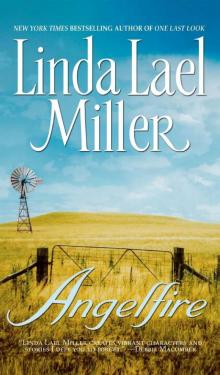 Angelfire
Angelfire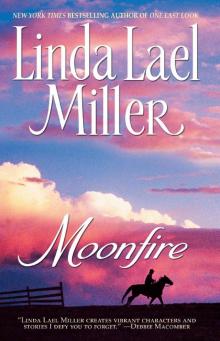 Moonfire
Moonfire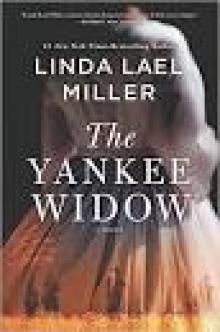 The Yankee Widow
The Yankee Widow The Cowboy Way
The Cowboy Way Country Strong--A Novel
Country Strong--A Novel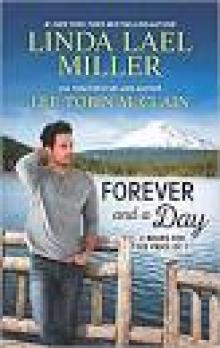 Forever and a Day
Forever and a Day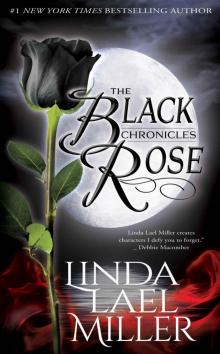 The Black Rose Chronicles
The Black Rose Chronicles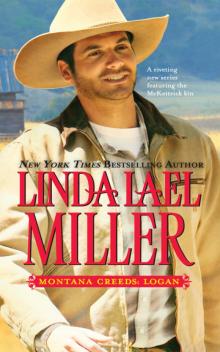 Montana Creeds: Logan
Montana Creeds: Logan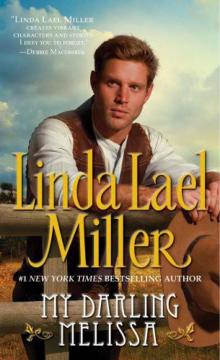 My Darling Melissa
My Darling Melissa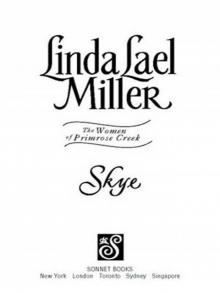 Skye
Skye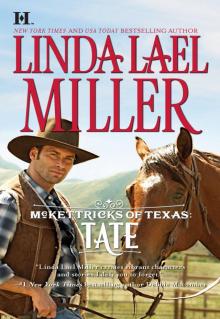 McKettricks of Texas: Tate
McKettricks of Texas: Tate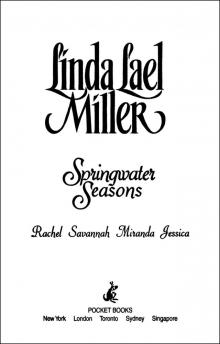 Springwater Seasons
Springwater Seasons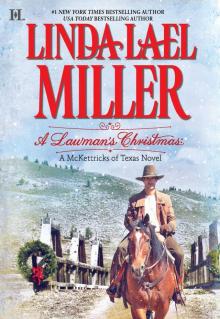 A Lawman's Christmas
A Lawman's Christmas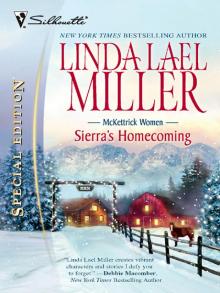 Sierra's Homecoming
Sierra's Homecoming![Parable, Montana [4] Big Sky Summer Read online](http://i1.bookreadfree.com/i/03/22/parable_montana_4_big_sky_summer_preview.jpg) Parable, Montana [4] Big Sky Summer
Parable, Montana [4] Big Sky Summer One Last Weekend
One Last Weekend A Stone Creek Collection, Volume 2
A Stone Creek Collection, Volume 2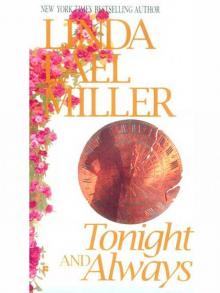 Tonight and Always
Tonight and Always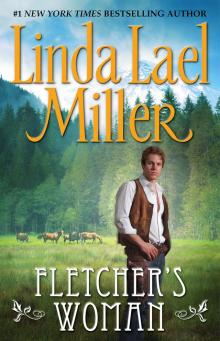 Fletcher's Woman
Fletcher's Woman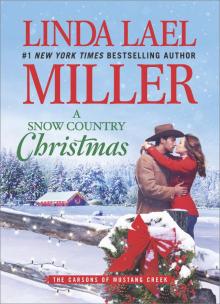 A Snow Country Christmas
A Snow Country Christmas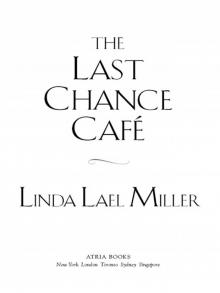 The Last Chance Cafe
The Last Chance Cafe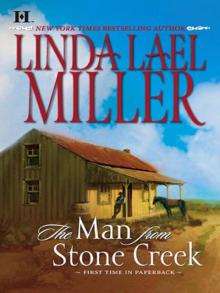 The Man from Stone Creek
The Man from Stone Creek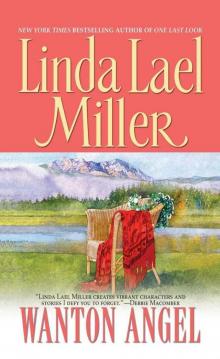 Wanton Angel
Wanton Angel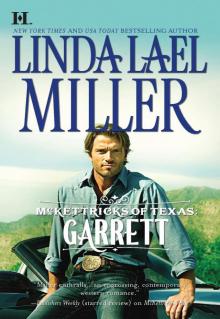 McKettricks of Texas: Garrett
McKettricks of Texas: Garrett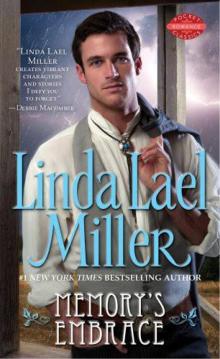 Memory's Embrace
Memory's Embrace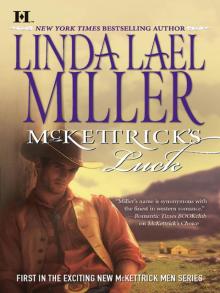 McKettrick's Luck
McKettrick's Luck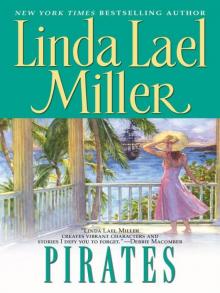 Pirates
Pirates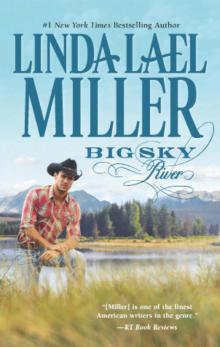 Big Sky River
Big Sky River Willow: A Novel (No Series)
Willow: A Novel (No Series)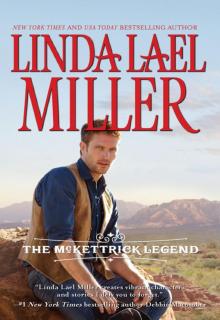 The McKettrick Legend: Sierra's HomecomingThe McKettrick Way (Hqn)
The McKettrick Legend: Sierra's HomecomingThe McKettrick Way (Hqn) Glory, Glory: Snowbound with the Bodyguard
Glory, Glory: Snowbound with the Bodyguard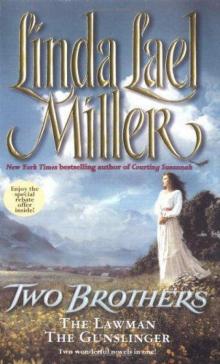 Two Brothers
Two Brothers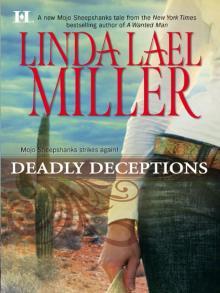 Deadly Deceptions
Deadly Deceptions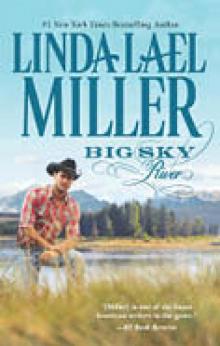 Big Sky Secrets
Big Sky Secrets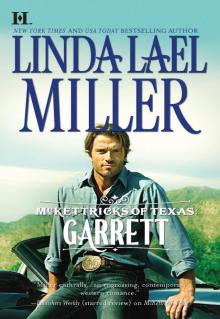 Garrett
Garrett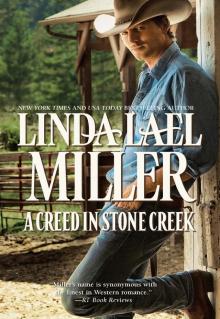 A Creed in Stone Creek
A Creed in Stone Creek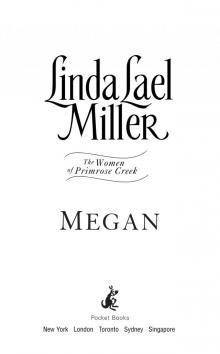 Megan
Megan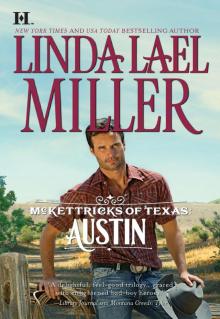 McKettricks of Texas: Austin
McKettricks of Texas: Austin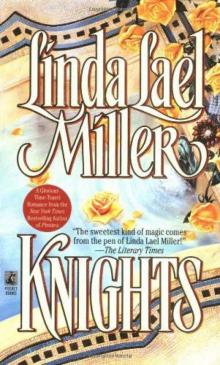 Knights
Knights High Country Bride
High Country Bride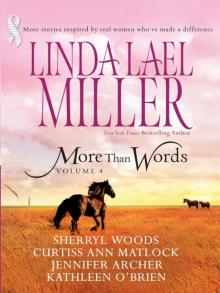 More Than Words Volume 4
More Than Words Volume 4 Glory, Glory
Glory, Glory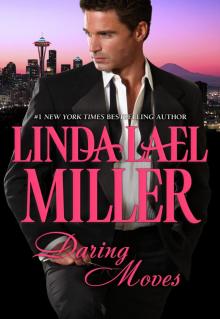 Daring Moves
Daring Moves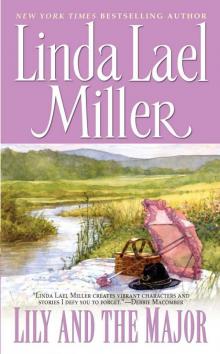 Lily and the Major
Lily and the Major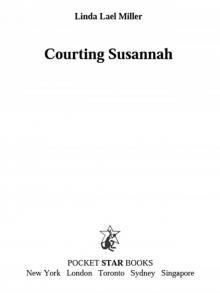 Courting Susannah
Courting Susannah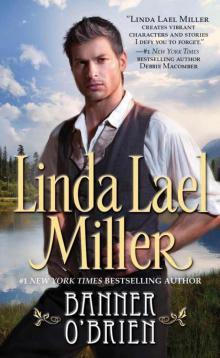 Banner O'Brien
Banner O'Brien Big Sky Mountain
Big Sky Mountain Linda Lael Miller Bundle
Linda Lael Miller Bundle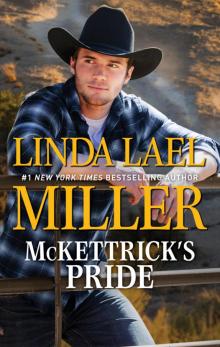 McKettrick's Pride
McKettrick's Pride A Stone Creek Collection Volume 1
A Stone Creek Collection Volume 1 A Wanted Man
A Wanted Man Big Sky Country
Big Sky Country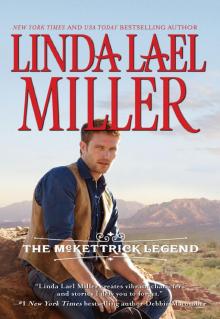 The McKettrick Legend
The McKettrick Legend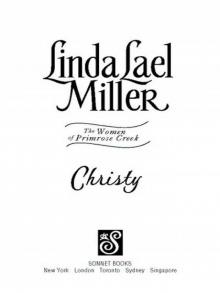 Christy
Christy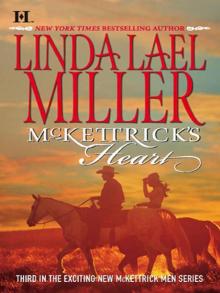 McKettrick's Heart
McKettrick's Heart Resurrection
Resurrection Arizona Heat
Arizona Heat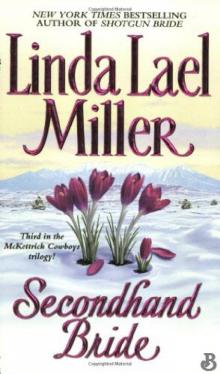 Secondhand Bride
Secondhand Bride Snowflakes on the Sea
Snowflakes on the Sea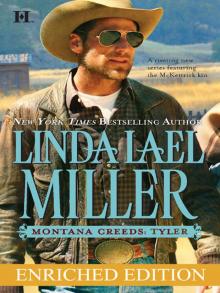 Montana Creeds: Tyler
Montana Creeds: Tyler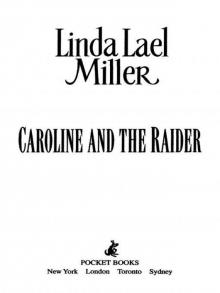 CAROLINE AND THE RAIDER
CAROLINE AND THE RAIDER A Proposal for Christmas: State SecretsThe Five Days of Christmas
A Proposal for Christmas: State SecretsThe Five Days of Christmas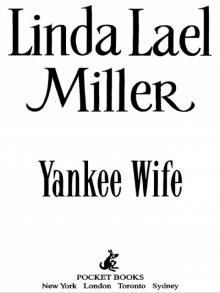 Yankee Wife
Yankee Wife Linda Lael Miller Montana Creeds Series Volume 1: Montana Creeds: LoganMontana Creeds: DylanMontana Creeds: Tyler
Linda Lael Miller Montana Creeds Series Volume 1: Montana Creeds: LoganMontana Creeds: DylanMontana Creeds: Tyler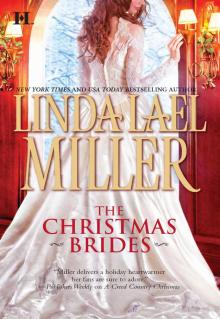 The Christmas Brides
The Christmas Brides McKettricks Bundle
McKettricks Bundle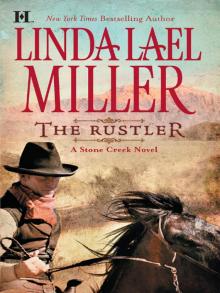 The Rustler
The Rustler Here and Then
Here and Then Only Forever
Only Forever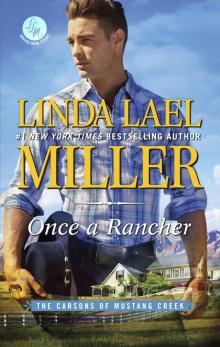 Once a Rancher
Once a Rancher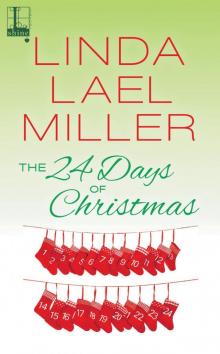 The 24 Days of Christmas
The 24 Days of Christmas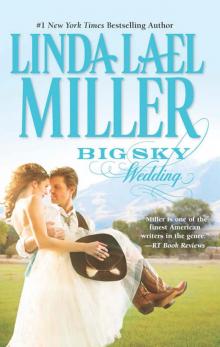 Big Sky Wedding
Big Sky Wedding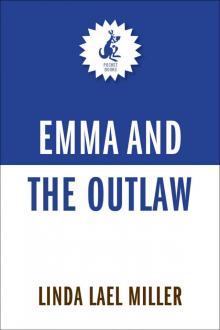 Emma and the Outlaw
Emma and the Outlaw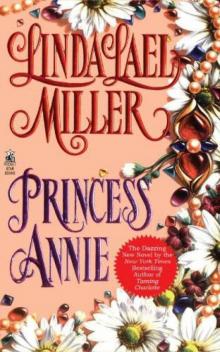 Princess Annie
Princess Annie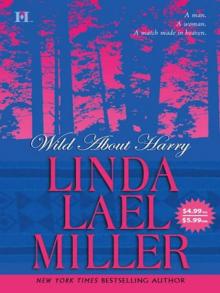 Wild About Harry
Wild About Harry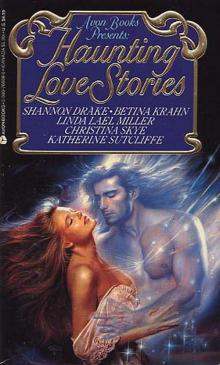 That Other Katherine
That Other Katherine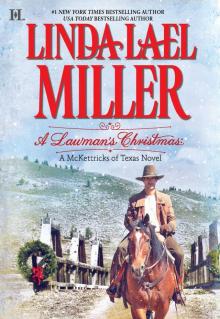 A Lawman's Christmas: A McKettricks of Texas Novel
A Lawman's Christmas: A McKettricks of Texas Novel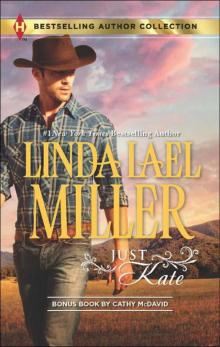 Just Kate: His Only Wife (Bestselling Author Collection)
Just Kate: His Only Wife (Bestselling Author Collection)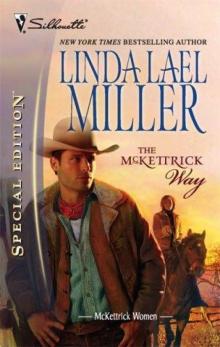 The McKettrick Way
The McKettrick Way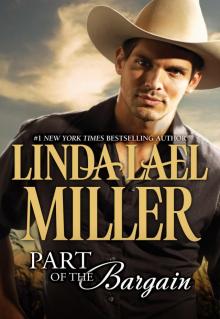 Part of the Bargain
Part of the Bargain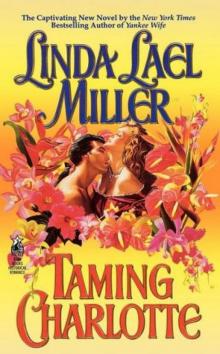 Taming Charlotte
Taming Charlotte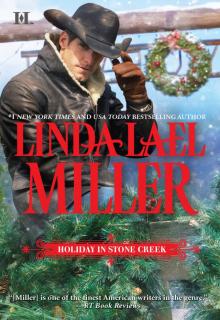 Holiday in Stone Creek
Holiday in Stone Creek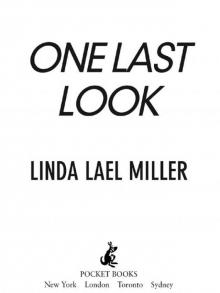 One Last Look
One Last Look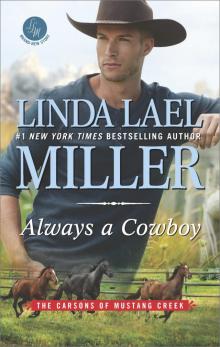 Always a Cowboy
Always a Cowboy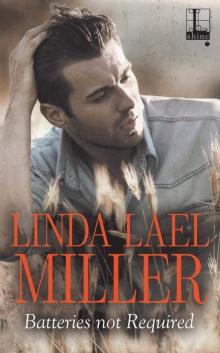 Batteries Not Required
Batteries Not Required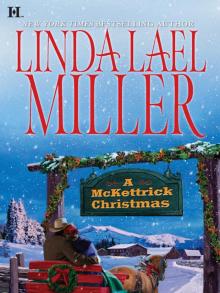 A McKettrick Christmas
A McKettrick Christmas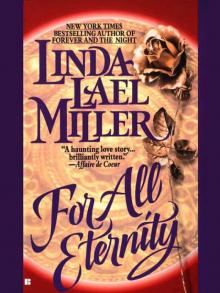 For All Eternity
For All Eternity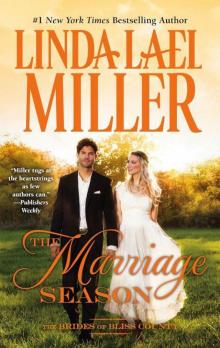 The Marriage Season
The Marriage Season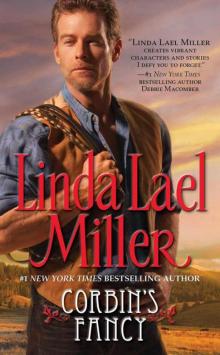 Corbin's Fancy
Corbin's Fancy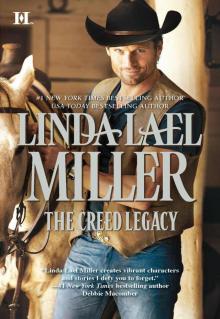 The Creed Legacy
The Creed Legacy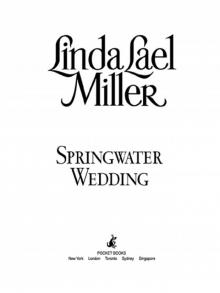 Springwater Wedding
Springwater Wedding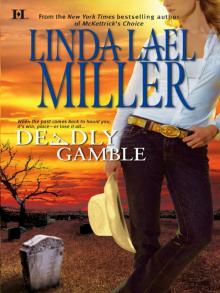 Deadly Gamble
Deadly Gamble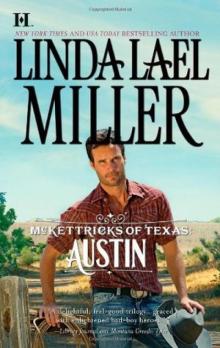 Austin
Austin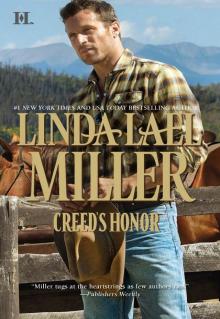 Creed's Honor
Creed's Honor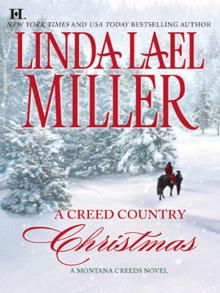 A Creed Country Christmas
A Creed Country Christmas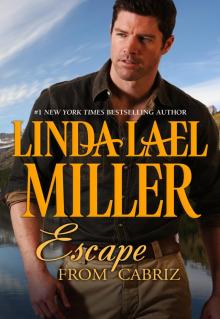 Escape from Cabriz
Escape from Cabriz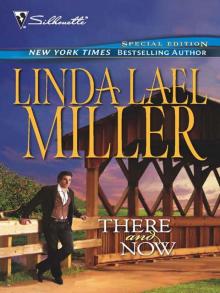 There and Now
There and Now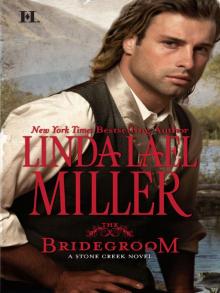 The Bridegroom
The Bridegroom State Secrets
State Secrets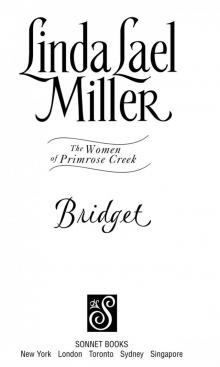 Bridget
Bridget